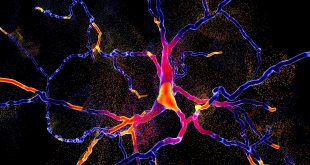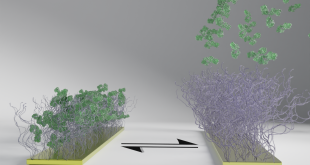As the world transformed with the coronavirus lockdowns of spring 2020, science shifted its focus to a new foe. Many Canadian foundations, companies and researchers are at the forefront of understanding the virus and discovering possible vaccines, while the world grapples with “the new normal.”
Dr. Theresa Tam, Canada’s Chief Public Health Officer, recently issued this statement about COVID-19:
“As of the end of the day on Friday, June 19, there were 100,629 confirmed cases including 8,346 deaths and 63,003 or 63% have now recovered. Labs across Canada have tested over 2,339,563 people for COVID-19 to date. Over the past week, we have been testing an average of 36,000 people daily, with just over 1% testing positive. These numbers change quickly and are updated daily in the evenings at Canada.ca/coronavirus
After months of Canadians working together to flatten the curve, many places across the country have reopened in time for the summer. Although sunny days are ahead, we must not let our guard down because there are still areas where COVID-19 is actively spreading.
It has been just over 100 days since Canada reported its first 100 people with COVID-19 and this past week we exceeded 100,000 reported cases. Although all indicators of COVID-19 activity have steadily declined in recent weeks, our epidemic curve and cumulative cases are a reminder of how quickly this disease can spread. As we continue to live with COVID-19, we must remain vigilant. Unless we keep public health measures up, we will not be able to keep COVID-19 disease activity down…. Because COVID-19 activity and precautions are not the same everywhere in the country, be sure to consult with and follow the advice of the local public health authority where you are.”
New research to accelerate discovery of antiviral COVID-19 medications
A $1-million research project is combining genomics, artificial intelligence and medicinal chemistry to discover new inhibitors of the SARS-CoV-2 virus that causes COVID-19. This June, Génome Québec announced funding for the partnership with the Institute for Research in Immunology and Cancer (IRIC) of the Université de Montréal, Université de Montréal, Mila–Quebec Artificial Intelligence Institute and McMaster University, spearheaded by professors Michael Tyers (IRIC/Université de Montréal), Yoshua Bengio (Mila/Université de Montréal) and Anne Marinier (IRIC/Université de Montréal).
The use of genomic screens will lead to a better understanding of the genetic interactions between the virus and human host cells, and thereby the identification of new targets for drug discovery. Artificial intelligence will be used to design novel chemical inhibitors against viral proteins and human host proteins on which the virus depends. And finally, with advanced medicinal chemistry, the team will be able to synthesize and test these inhibitors.
Over the long term, this combined genomics/artificial intelligence approach could help significantly accelerate – when compared to traditional approaches – the discovery of antiviral medications for future pandemics. The approach also can be applied to the development of new treatments for cancer and many other diseases.
“This is an exciting project, first because of its potential to discover medications that could have a significant impact on COVID-19, then because the methodology used could be generalized to research into new therapeutic molecules in other areas,” explains Yoshua Bengio, scientific director of Mila. “And finally, because the project raises research questions that are way off the beaten path, which will contribute to advancements in science as a whole.”
Selected as part of a joint Genome Canada-Génome Québec program, the project will also receive funding from Mila, IRIC and McMaster University.
 BioLab Business Magazine Together, we reach farther into the Canadian Science community
BioLab Business Magazine Together, we reach farther into the Canadian Science community





